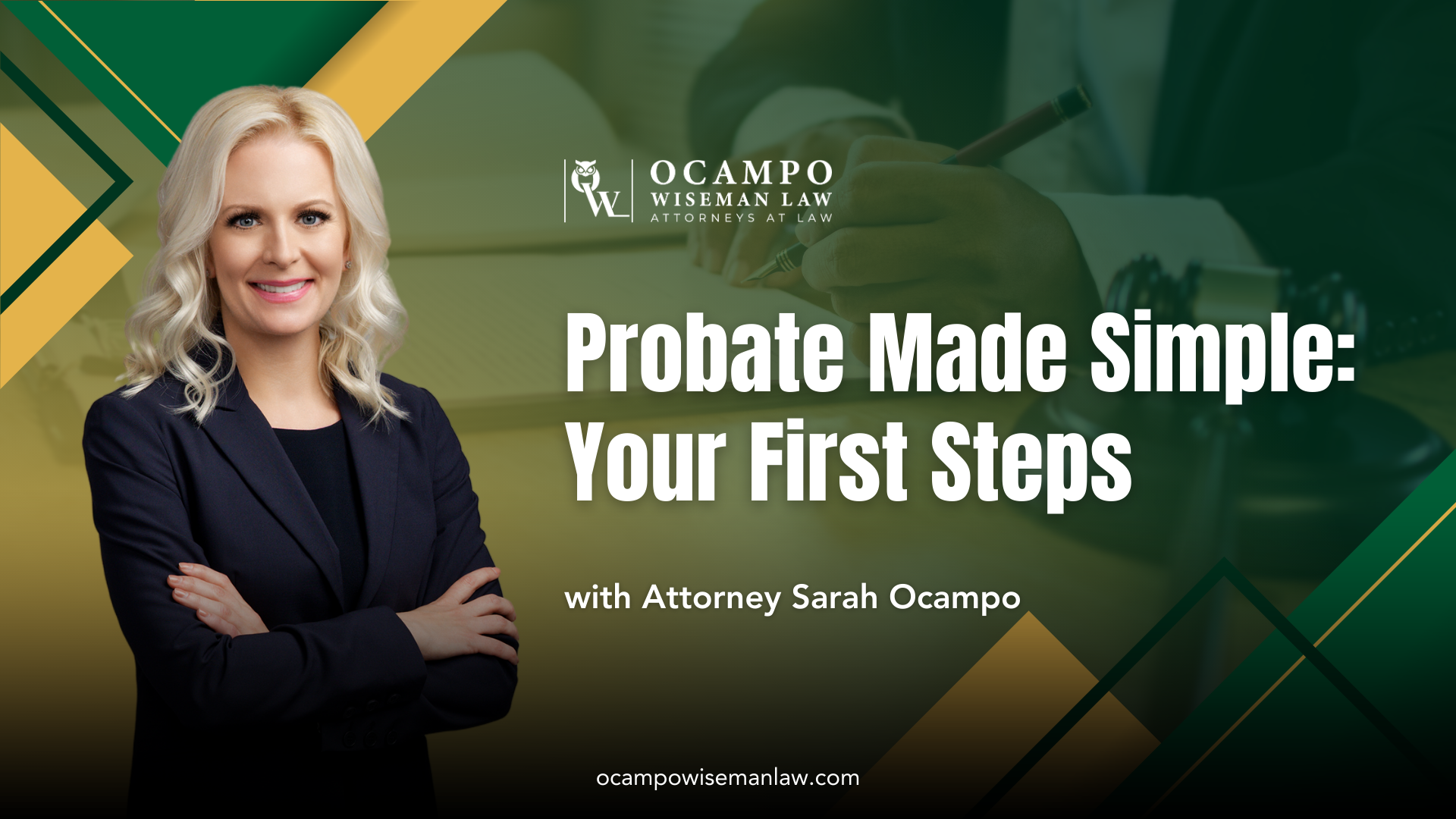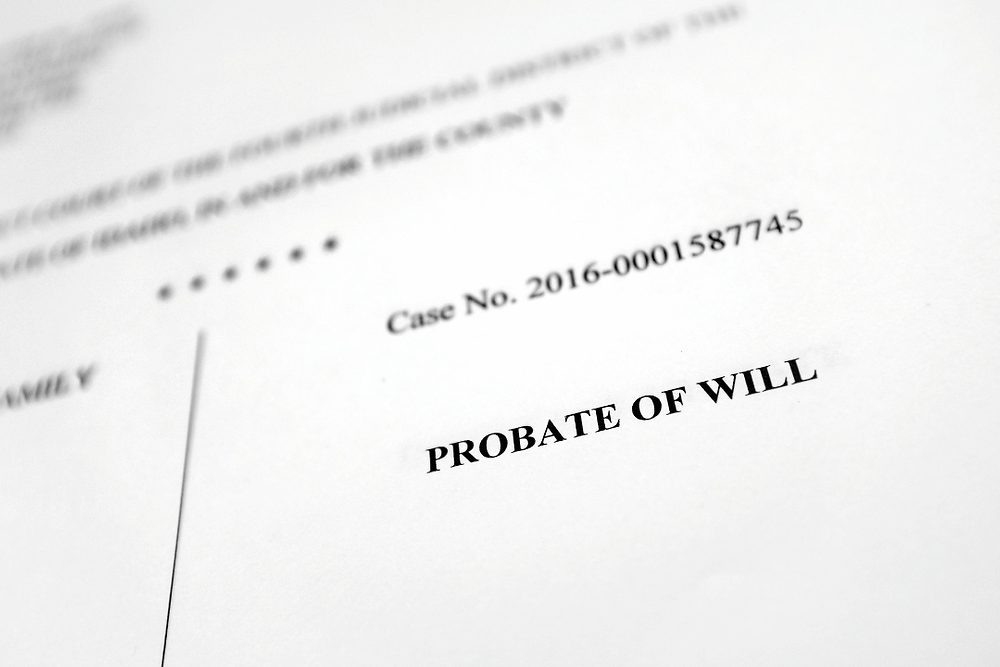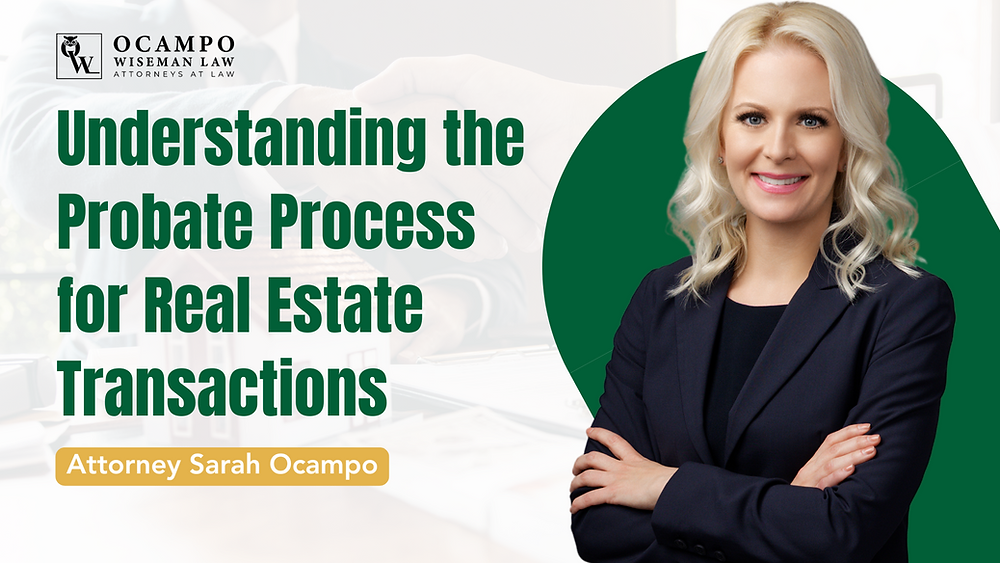Starting the Probate Process in Nevada: A Step-by-Step Guide
Sarah Ocampo

When you have to handle a loved one's estate, the days and weeks after their death can be quite taxing. If you're reading this, you've probably heard that you need to "start probate" - but what exactly does it imply, and where do you start?
Understanding Your First Steps in Probate
The probate process usually starts with an important first step: choosing an expert probate attorney. While it is possible in theory to manage probate without legal assistance, hiring a knowledgeable attorney can save you a lot of time.
Your attorney will guide you in submitting the initial petition with the court to name you (or another suitable individual) as the estate's administrator.
Finding the Right Legal Support
When selecting a probate attorney, look for someone specializing in estate administration in your state. Each jurisdiction has its own probate rules and procedures, so local expertise matters.
Schedule consultations with at least two or three attorneys to discuss their experience, fees, and approach to handling estates similar to yours.
The Initial Court Petition
Once you've hired an attorney, they'll draft and submit a petition to the probate court. This paperwork officially requests that the court appoint an administrator or executor for the estate.
The petition often includes:
- Important information about the dead person, including their date of death and last known address
- Information about their will (if it exists).
- A preliminary list of known assets and debts.
- Details about the recommended administrator and their qualifications to serve.
- Names and contact details for all known heirs
What Happens After Filing
After filing the petition, the court will schedule an initial hearing. Your attorney will help ensure all interested parties receive proper notice of this hearing, as the law requires.
During this time, you'll also need to gather important documents such as:
- The original will (if one exists)
- Certified copies of the death certificate
- Recent statements from financial accounts
- Property deeds and vehicle titles
- Life insurance policies
- Tax returns from the previous few years
Practical Tips for Success
Start organizing documents early, even before meeting with an attorney. Create a dedicated folder (both physical and digital) for estate-related paperwork.
Keep detailed records of all time spent and expenses incurred while handling estate matters These may be reimbursable from the estate.
Maintain clear communication with all beneficiaries about the process and timeline. Regular updates can prevent misunderstandings and potential conflicts.
Don't make any distributions or sell any assets until you have official authority from the court. Premature actions could result in personal liability.
Looking Ahead: The Next Phase
After the court approves your petition and appoints an administrator, you will obtain "Letters of Administration" or "Letters Testamentary."
These documents provide you the legal authority to begin administering the estate's affairs, including:
- Open an estate bank account.
- Gathering and inventorying assets
- Paying valid debts and taxes
- Finally, dispersing assets to beneficiaries.
Common Challenges and How to Address Them
Missing Documents: If you can't locate essential papers, check the deceased's safe deposit box, contact their financial advisors, or search online accounts.
Family Disputes: Address conflicts early by maintaining transparency and following your attorney's guidance on proper procedures.
Complex Assets: Business interests or unusual investments may require specialized appraisals or additional legal expertise.
Getting Professional Support
In addition to your probate lawyer, you might have to collaborate with:
- A tax accountant
- A qualified evaluator of priceless assets
- A real estate agent with experience in probate sales
- A financial counselor to help with investment choices
Taking the First Action Steps
- Gather all available estate planning documents and recent financial statements
- Research and contact potential probate attorneys in your area
- Schedule initial consultations with at least two attorneys
- Begin documenting all estate-related activities and expenses
- Create a communication plan for keeping beneficiaries informed
Although initiating probate is only the first step in the process, following these preliminary procedures with care and technique can provide the groundwork for a more seamless estate administration.
Even though the procedure could appear overwhelming, you can properly carry out your duties by breaking it down into manageable phases and collaborating with skilled professionals.
Throughout the process, maintain organized records, and don't hesitate to ask your attorney questions – that's what they're there for. With proper guidance and careful attention to detail, you can navigate the probate process successfully while honoring your loved one's legacy.
Need more specific guidance about probate in your state? Consult with a local estate planning attorney who can provide detailed information about your jurisdiction's requirements and procedures.




